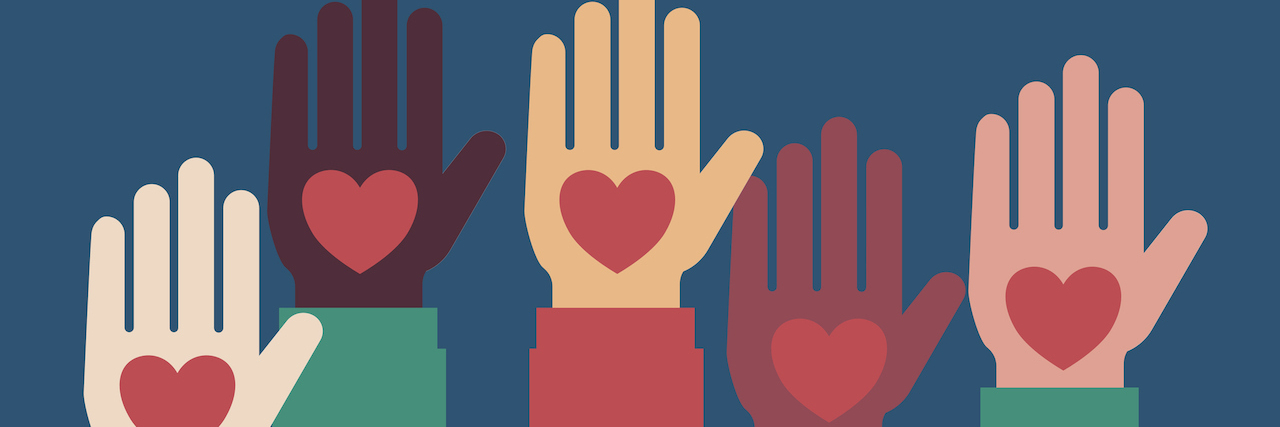Why People With Chronic Illness or Disabilities May Not Ask for Help When They Need It
Life with chronic illness or disability can be full of challenges. I have often been counseled to identify my needs and ask clearly for help, and we may need to request help far more often than others. However, needing help (and feeling vulnerable) is deeply entwined with the experience of security and dignity. Managing our symptoms, our circumstances and the feelings they trigger can add layers of difficultly to asking for and securing the help we need.
Here are six reasons people with chronic illness or disabilities may not always ask for help when we need it.
1. The Reaction Hesitation
Unfortunately, due to the conditions of our daily lives, we sometimes need to ask for help from unknown or potentially untrustworthy sources. Many of us have been judged or shamed because we asked for help. Some of us don’t have reliable caregivers. Additionally, it can be difficult to nurture friendships and make helpful connections when living with chronic debilitation. I’ve found it is not uncommon to be met with something less than kindness when we ask for help.
Sometimes we don’t ask because we’re still hurting from the last time we did.
2. The Chaos Complication
Unfortunately, some truly well-intentioned people may not make the most effective helpers. Their help can come surrounded in a cloud of chaos, requiring creativity and patience on our part to secure. It may become necessary to constrict or refuse their efforts to contribute. Ironically, this can create more confusion and they may believe we have difficulty identifying and communicating our needs.
Sometimes we don’t ask because the help, no matter how generous, is unpredictable, and securing it can be too complicated and difficult.
3. The Communication Contortion
Securing assistance as efficiently as possible often depends upon our ability to communicate well. Unfortunately, sometimes we can barely speak. During painful and constrictive episodes, we may need to do backflips and cartwheels of communication to make ourselves understood.
Sometimes we don’t ask because genuine challenges to communication exist, and in the moment, we are in too much pain to overcome them.
4. The Buy-in Barrier
Some potential helpers hesitate if they don’t understand why a specific request is being made, and they may need to be convinced that a valid need exists. This can place us in the position of inspiring mental/emotional empathy in the other. In these cases, it is not often enough to simply ask for help.
Alternately, a would-be helper can have too much buy-in. They may be overly attached to helping. They can project (often false or exaggerated) needs onto us and compulsively insert themselves into the situation. Attention and energy is required to mitigate or deflect their efforts, maintain boundaries and nurture a truly empathetic perspective.
Sometimes we don’t ask because needing to inspire empathy in another can be too difficult and demoralizing.
5. The Facilitation Failure
A great deal of effort may be required on our part to secure the necessary help. Sometimes it requires months of nightmarish bureaucracy to receive therapeutic or financial support, or personal support systems may have to be built from scratch. At other times, it simply means giving a few instructions or adapting in a seemingly small way, but even that can be too much for us. Regardless, putting in the work may be our only option. It can feel profoundly draining and discouraging.
Sometimes we don’t ask because we may be too exhausted to facilitate the process of receiving help.
6. The Attitude Adjustment
Sometimes the person with the authority to either grant or withhold help may expect us to exude a sunny positivity, resilience or optimism. Deliberate or not, prescribing a specific attitude as a prerequisite for receiving help, can act as a threat to the well-being and basic security of a person living with chronic illness or disability.
Sometimes we don’t ask because we can’t find the energy to demonstrate or prove how hard we are trying.
It can be very important, both for those living with illness and disability as well as for those who love us, to share about the process of asking for and offering help. What examples of asking fatigue have you experienced or encountered?
Getty image by Dumitru Ochievschi

